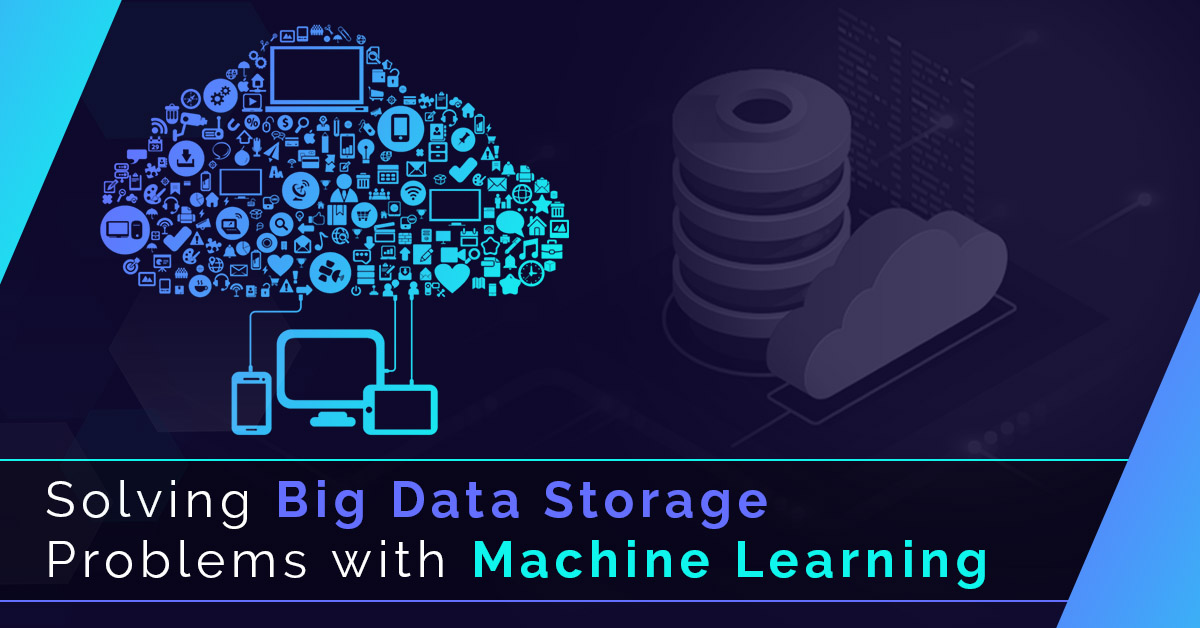There is no rocket science in understanding the fact that data is the most precious element in the modern business environment. Irrespective of the size of the company, having a concrete amount of data is essential as it provides a perfect base for the companies to take their business forward. By Machine Learning algorithms, industries can also realize the hidden value in their present data.
Organizations, in general, don’t prefer to get of the aging data as they are aware of the fact that the data can be useful at any point in time in their business. This, in turn, causes a problem in storing the data and puts an additional load on the analytical process.
Different types of Machine Learning architecture can come to the rescue for the organizations as they can gauge the amount of big data in real-time and synchronize it according to usage.
The following methods will help organizations fathom the Big Data storage problems with ML.
The information you will find in the article will be also useful if you want to write an analytical essay example.
Lambda Architecture
Companies all around the world often face a problem juggling between current data and real-time data. Current data can yield more information but it is not as updated as real-time data. On the other hand, real-time data is not in a synchronized manner and is completely raw. To rectify this situation, Lamba Architectures streams Big Data in two different layers: speed layer and batch layer.
The basic work of the batch is to store the data which is not needed in real-time. Thus it improves the quality of data. While inbound data is streamed in the speed layer which is used to provide real-time data to the organization.
Whenever a query is made, the Lambda Architecture fetches the information from both the batch layer and the real-time speed layer. Thus Lambda architecture provides more competent and comprehensive information.
Customized Field Programmable Gate Array
Although new in the world of information and technology, customized field programmable gate arrays were being used extensively in electrical engineering. Companies can use customized FPGAs at extremely low latency as it can act specifically for specific requirements rather than being purpose serving devices.
In addition to this, floating-point computations can be performed with ease by FPGAs. It also excels in the interference tasks and thus the vendors can use FPGA is the platform for machine learning integration. FPGA can also bring down the cost and complexity of the device in use and can also be used as an alternative for data analysis.
Enabling small teams to manage data
The Biggest Challenge that companies face in terms of data is that various analysts pull data from various sources. By streamlining the data, companies can manage it with a lesser number of people using Machine Learning. Therefore, the amount of hassle and the fear of losing the data is less as the source to fetch the data is well-defined and is done by a specific number of people.
Machine Learning will provide stability to the team which is handling the data. Moreover, it gives the needed scalability to tackle and manage large volume, variety, and velocity of Big Data. The concerned data analyst doesn’t have to invest a lot of time in cleaning the useless data as Machine Learning will layer it and bifurcate it according to the usage. Thus the efficiency of the team will increase as they will have to analyze only the unified data sets.
Throwing away the unwanted data
Machine Learning Analytics can identify the data which is not or seldom used by the company over a period of time. By identifying the unused data, it will recommend the analyst to throw away the data and the analyst then can do the action based on his wisdom and the real importance of the data.
Machine Learning can pick the unused data from a specific time window, say for five years and suggest the analyst take due actions. Going through a large amount of data is practically impossible for the human brain, thus with the amalgamation of ML, the sorting of data can be done in proper order. This saves zillions of man-hours and as a result, improves the productivity of the company.
Best Access to Data Storage
IT departments of organizations around can use the facility of Smart Storage engine with the help of machine learning and bifurcate the data in accordance with its usage. The data will be stored automatically with the help of automation which is based on machine algorithms. In addition to this, the automated storage saves time of the data managers and reduces the cost of operations simultaneously.
Moreover, when it comes to source data from various sources, Machine Learning can automate this very much manual process by developing ‘data mappings’ between the source and the data repository. This process will do a world of good in cutting down the time take to integrate and aggregate the data.
Low-cost storage devices
With Machine learning architecture, businesses can store big data in small storage devices for better and fast analysis. With ML architecture, organizations can use open formats such as Apache Parquets. The open format will allow the storage process of big data to be done in public clouds on-premises, as per the requirement of the organization. For streamed events, memory-optimized storage devices for big data can play a huge part in retrieving the data as per requirement and faster analysis.
Why should Organizations opt for Machine Learning?
Before deciding to opt for machine learning to rectify their problem of data storage, organizations must be sure enough about the objective that they want to achieve. Once that is done, they can look for the specific benefits that machine learning provides to large-quantity data storage. For example, if optimizing the performance of the data is your main goal, you can opt for machine learning which analytics is for data-based products. Thus depending on the needs and requirements, the companies must choose the best machine learning benefits and raise their performance in the realm of modern-day business.
Final Words
Data is gold for the business and storing it in the best possible manner is crucial for the advancement of any business. Apart from storage, data security is of paramount business and Machine Learning with Artificial Intelligence does this job in the most competent manner. Including Machine Learning will not put any extra burden on your pocket and thus it is quite feasible for the new age budding startups to incorporate ML and be sure about the storage of their data from the word go.












